Methods
Participants
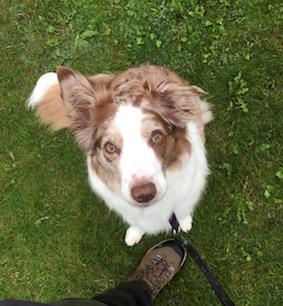
A total of 58 dog-owner dyads were recruited for this study
- 25 border collies
- 33 Shetland sheepdogs
These were subdivided into two separate lifestyles
- 32 competing lifestyle dyads
- 26 pet lifestyle dyads
Testing Procedure
Each dog-owner dyad went through the following testing procedure.
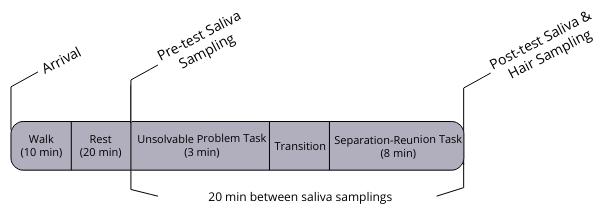
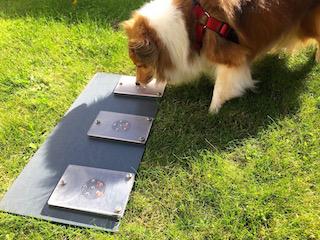
Unsolvable Problem Task
The unsolvable problem task aims to record human contact-seeking behaviors from the dog. During the task, the dog was presented with an apparatus containing three plates each covered by a translucent lid with small holes to facilitate odor passage of the treats beneath. The two outer lids were easily manipulable to gain access to treats, however, the middle lid could not be opened by the dog itself. Each dog had a total of 3 minutes to try and operate the apparatus.
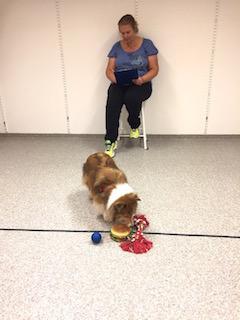
Separation-reunion task
The separation-reunion task investigates attachment behavior in dogs and it consists of three parts.
- Baseline (3 min): Both dog and owner are in the room. Owner is filling out a questionnaire and does not interact with the dog unless initiated by the dog itself.
- Separation phase (2 min): Owner exists the room and dog is left alone
- Reunion phase (3 min): Owner re-enters the room, greets the dog as they normally would in a home setting, and sits back down again on the chair not interacting unless initiated by the dog itself.
Hair Cortisol
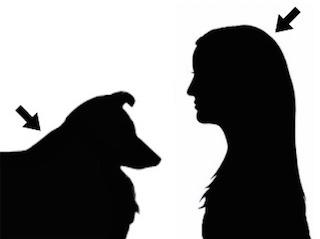
Hair samples of both owners and dogs were collected after behavioral testing for each dyad (see figure for sampling sites).
In order to reflect incorporation of cortisol into the hair during the summer season, 3 cm of the total hair sample closest to the hair follicle was analyzed in the lab using radioimmunoassay.
Saliva Cortisol
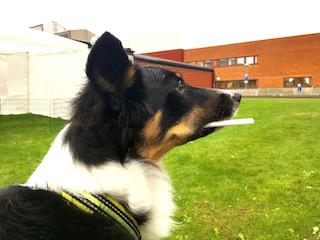
Saliva samples of both owners and dogs were collected pre-, post-behavioral testing (20 min after the pre-saliva sample), and once in the morning for each dyad using saliva swabs.
Swab storage tubes with swabs were centrifuged after which saliva was pipetted out and analyzed using radioimmunoassay.
PetPace
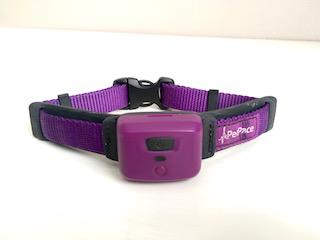
In order to measure continuous activity levels of the dogs, owners were instructed to put a PetPace Smart-collar around the dog’s neck for seven full days after the behavioral testing. This non-invasive wireless collar collects data points of various bio-parameters at fixed intervals throughout the day.
Questionnaires
All owners were asked to fill out a total of four questionnaires.
- Perceived Stress Scale: owner stress
- Big Five Inventory: owner personality
- Dog Personality Questionnaire: dog personality
- Lifestyle
Responsible for this page:
Director of undergraduate studies Biology
Last updated:
05/15/18
